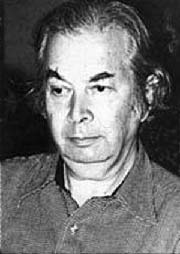| 2002 European Teams Championships | Page 4 | Bulletin 9 - Monday, 24 June 2002 |
|
|
||
|
Kaplan Nuggets
We have a suggestion that the job description for all budding VuGraph commentators should include a directive to study the comments of the one and only Edgar Kaplan. You may have seen some of these before, but many of them will be new to you. Enjoy! Hamman reads the cards perfectly, makes 2NT with an overtrick Making three, plus 150 (what a waste of talent to have him declarer in a part-score!). Perhaps you understand why three Wests decided to double four spades after their partner had preempted in hearts. All three are marvellous players, so no doubt the decision is more sensible than it looks to me; perhaps it would be right in the long run. In the short run, though, they were unable to take any heart tricks in defence. There was a swing in both matches when players impiously chose not to lead their God-given sequence. It is astonishing how often a player in seven is laying huge odds because the opposing team did not reach even six at the other table. It is not clear where West got his double of four spades in the Closed Room; perhaps from the same place that East got his opening bid. The Canadians made dubious penalty doubles at both tables (dubious by my standards, but I double fewer voluntarily bid games than most -I figure that good opponents, looking at their cards, may know what they are doing). West chose to lead king of clubs, club. (Faithful readers of my reports will know that 'chose to lead' carries the implication that I would have chosed differently -to me, a trump lead stands out.) At table 4, Zia was declarer at five clubs (actually, Deutsch was supposed to hold the South cards, but Zia had reversed the board -what a hand hog!) At Table 3, East had bid spades, so she tried a surprise, the nine of diamonds. Declarer may have been surprised, but he was not dismayed. Zia, West at Table 2, counted 6 points extra for length plus 3 for shortness to reach the value for his notrump opening. The three-notrump contract he reached temporarily was indeed the winning spot, although for North-South. ZIA went farther ahead when Meckstroth-Rodwell (I know you're not going to believe this) stopped at two spades with 26 high-card points plus two five-card suits, without a misfit -and they were right. The Laws should really allow a player who has made a penalty double to look at his cards again, then undouble. Cohen, South, did not think that the good Lord intended him to be dummy at five diamonds. He held A109xxxx-Qxxxx-x-/ As Levin, West, suspected, there was no duplication of values, but there weren't many values. The North-South auction in the Open Room was confused. It ended, like most confused slam auctions, in six notrump. I've never understood why they say that down one is good bridge. after a partscore went one down; with the same cards, Meckstroth made 3NT+ 1. Making an overtrick -that's good bridge. It is astonishing how much controversy is caused by players who, trying to be helpful, tell their opponents not what the partnership has agreed but what they think a call should mean. Another ruff had been available to the defenders, but who wants to collect 200 undoubled (particularly when cold for slam)? On lead against six diamonds, Soloway, West, no doubt reached for the king of hearts, but it was the king of spades that hit the table. The cards lie extremely lucky for declarer, Wolff; Kaplan notes:] When you are president of the WBF, the cards behave for you. In the Closed Room, Rodwell, East, doubled four spades, which would have been fine if it have been for penalties, but to pass partner's first double is considered vulgar nowadays; so, Meckstroth took out to five hearts. Lair, South, doubled that, which probably would have been fine if North had passed. But, of course, Passell, North, took out. East's second double was respected: down 300. West's double of five diamonds at Table 1 seems to me to have little relation to his hand. A priori, the opponents are unlikely to be able to take 11 tricks on any deal, but the fact of their bidding five must change the odds. |
|
|
| Page 4 |
